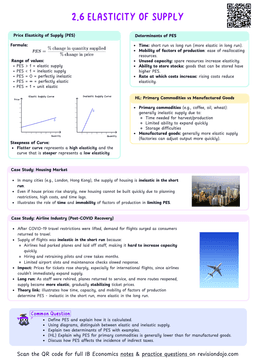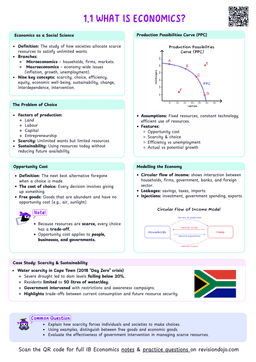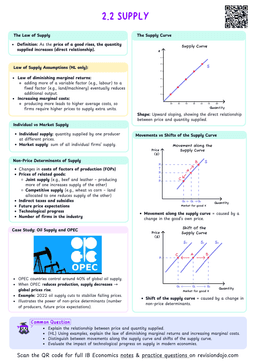Free Trade Versus Trade Protection
- Imagine a world where countries freely exchange goods and services without barriers.
- Now, picture another world where governments impose tariffs, quotas, and regulations to shield their economies.
Think of free trade as an open highway where goods and services flow smoothly between countries, while trade protection is like a toll road with barriers that slow down or restrict the flow.
Free Trade: The Open Highway
Free Trade
An absence of government intervention in international trade, resulting in no imposing restrictions of any kind on imports and exports.
Benefits of Free Trade
- Efficiency and Specialization:
- Countries focus on producing goods where they have a comparative advantage.
- This leads to lower costs and higher productivity.
- Consumer Benefits:
- Lower Prices: Access to cheaper imported goods.
- Greater Variety: A wider range of products and services.
- Economic Growth:
- Free trade expands markets for domestic firms, boosting exports and economic growth.
- Innovation and Competition:
- Exposure to global markets encourages firms to innovate and improve efficiency.
When Japan exports cars to the United States, American consumers benefit from high-quality vehicles at competitive prices, while Japanese manufacturers gain access to a larger market.
Drawbacks of Free Trade
- Job Losses: Domestic industries may struggle against cheaper foreign competition, leading to unemployment.
- Income Inequality: Benefits of free trade may not be evenly distributed, widening the gap between skilled and unskilled workers.
- Dependency: Over-reliance on imports can make countries vulnerable to external shocks.
A common misconception is that free trade always benefits everyone equally. In reality, while it increases overall efficiency, it can create winners and losers within an economy.
Trade Protection: The Toll Road
Trade Protection
When the government intervenes in international trade by imposing restrictions to reduce free imports.
Arguments for Trade Protection
- Protection of Infant Industries: New industries need time to develop before competing globally.
- National Security: Ensures self-sufficiency in critical sectors like defense and energy.
- Job Preservation: Safeguards domestic employment by reducing competition from cheaper imports.
- Anti-Dumping Measures: Prevents foreign firms from selling goods below cost, which can harm local businesses.
- Government Revenue: Tariffs generate income for the government, especially in developing countries.
In the 1980s, South Korea protected its automobile industry with tariffs and quotas. This allowed companies like Hyundai to grow and eventually become competitive in global markets.
Criticisms of Trade Protection
- Higher Prices for Consumers: Tariffs and quotas increase the cost of imported goods.
- Inefficiency: Protecting domestic industries can lead to resource misallocation.
- Retaliation: Other countries may impose their own trade barriers, leading to trade wars.
- Reduced Innovation: Lack of competition can make domestic firms complacent and less innovative.
When evaluating trade protection, consider both the short-term benefits (e.g., job preservation) and the long-term costs (e.g., inefficiency and higher consumer prices).
Evaluating Free Trade Versus Trade Protection
Short-Term vs. Long-Term Impacts
- Short-Term: Trade protection can stabilize domestic industries and preserve jobs.
- Long-Term: Free trade promotes efficiency, innovation, and economic growth.
Stakeholder Perspectives
- Consumers: Generally benefit from free trade due to lower prices and greater choice.
- Domestic Producers: May prefer protection to shield against foreign competition.
- Governments: Must balance economic efficiency with political and social objectives.
- How do cultural and political differences influence a country’s stance on free trade versus protectionism?
- Consider how these factors shape economic policies.
The Role of Comparative Advantage
- Free trade relies on the principle of comparative advantage, which argues that countries should specialize in what they do best.
- However, this assumes perfect information and rational behavior, which may not always hold true.
- While most economists agree that free trade is beneficial in the long run, they also acknowledge that short-term disruptions can be significant.
- Policymakers must weigh these trade-offs carefully.
- Which approach do you think is more beneficial for developing countries?
- How might trade protection impact global cooperation on issues like climate change?
- Can you think of a real-world example where trade protection had unintended consequences?


